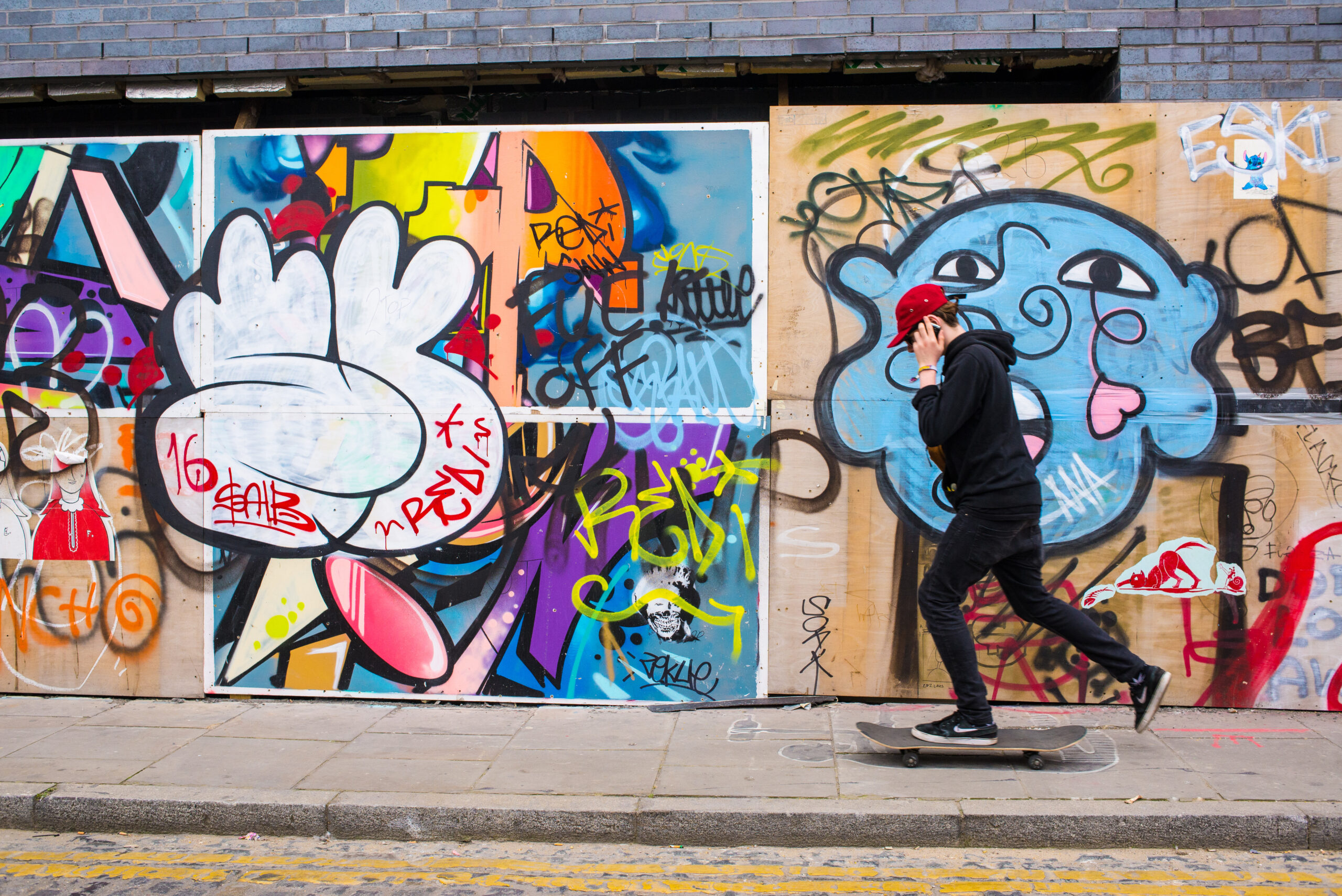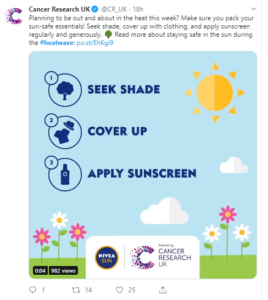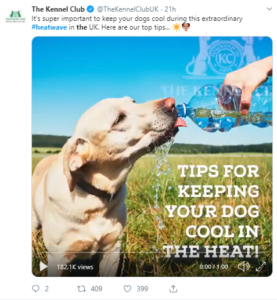
Some like it hot! Piggybacking on the heatwave
Some like it hot! Piggybacking on the heatwave
24 July, 2019
This week the UK is experiencing a record-breaking heatwave as temperatures reach the high 30s, potentially surpassing the all-time UK record from 2003. The heat has led to windows shattering, roads melting, the closure of schools and the Environment Agency employing drones to stop people stealing water from lakes.
On Tuesday, the extreme weather was all we could talk about (aside from obvious political developments), with #UKHeatWave trending on Twitter. And the UK’s charities have got in on the action, offering practical tips on topics from pet care to sun wear, and driving brand awareness and engaging audiences on social media.
Cancer Research UK has been tweeting about protecting yourself from the sun, a contributing factor to the development of skin cancer. Friendly and practical infographics instructed us to seek shade, cover up and apply sunscreen and highlighted their charity partnership with Nivea.
The Kennel Club has been engaging audiences by providing tips on protecting dog’s wellbeing in the hot weather. This includes looking out for signs of overheating (sluggishness and panting) and how to keep your dog cool at home – adding ice to their bath felt like a particularly good suggestion as we melted in the office. And the tips received an impressive number of likes and retweets.
Homelessness charity Shelter shared potentially life-saving advice and sign posted the public to Street Link to connect people to local services.
For UK charities, the current heatwave provides a vital opportunity to spread advice about the dangers to the public of extreme heat. And with extreme temperatures set to continue and increase, it will be interesting to see how charities can find creative ways to piggy-back on seasonal hooks.
Last year, we worked with London homelessness charity Evolve to encourage members of the public to donate potentially lifesaving items such as sunglasses, sun cream and bottles of water to people sleeping rough. By jumping on the news agenda Evolve was mentioned in 273 articles in titles including The Telegraph, BBC, The Sun, Daily Mail, Evening Standard, and Metro.
Read more about the project here.


